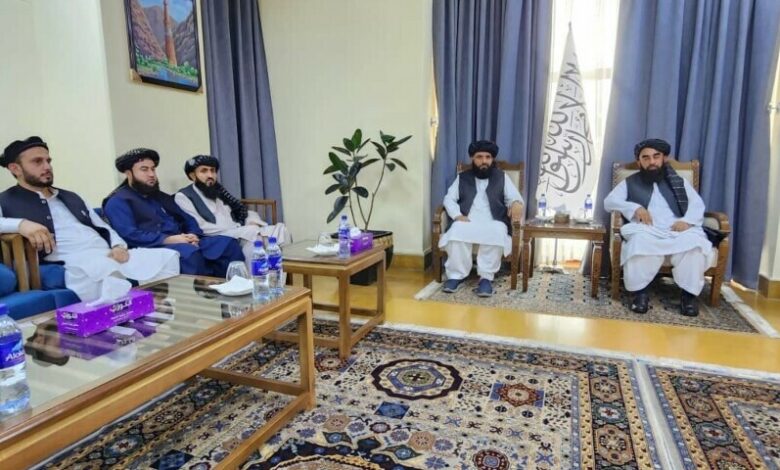Afghan Taliban to attend third round of UN talks in Doha today


An Afghan Taliban delegation on Sunday will participate in the third round of the United Nations-hosted meeting of Special Envoys and Special Representatives on Afghanistan in Doha, Qatar.
This will mark the first time the de facto Afghan rulers will attend a gathering of international envoys on Afghanistan since UN Secretary General Antonio Guterres started the process in May 2023, aimed at developing a coherent and unified world approach to engagement with the Taliban.
The Taliban government has not been officially recognised by any state and the international community has wrestled with its approach to Afghanistan’s new rulers, with women’s rights issues a sticking point for many countries.
Taliban authorities were not invited to the first talks in Doha last year and refused to attend the second conference, demanding that they be the sole Afghan representatives to the exclusion of invited civil society groups. That condition has been met for the third round.
The meeting will begin at 8:45pm with opening remarks by UN Undersecretary General Rosemary DiCarlo, followed by welcoming remarks from Qatari officials. The talks will conclude on July 1.
Afghan government spokesman Zabihullah Mujahid, who is the head of the five-member Taliban delegation, told reporters in Kabul on Saturday that he would “seek understanding and resolve issues,” according to state news agency Bakhtar.
Pakistan will also be attending the talks, with the delegation being led by Asif Khan Durrani, the country’s special representative on Afghanistan. Ubaidur Reman Nizamani, Islamabad’s envoy in Kabul, is also part of the delegation.
There are two items on the official agenda, which has been seen by Dawn.com: enabling the private sector and counter narcotics and sustaining progress.
Although the official agenda consists of only two points, participants from nearly 30 countries and international bodies will be free to raise any issue.
It should be mentioned that the UN has been under fire for the exclusion of civil society groups, including women’s rights activists, from the talks.
However, civil society representatives, including from women’s rights groups, will attend meetings with the international envoys and UN officials on Tuesday (July 2), after the official talks.
On Sunday, an Afghan foreign ministry official said that the July 2 meeting was not part of the Doha format.
“If several special envoys meet with someone after the meeting of the participants, it has nothing to do with the Doha-III [meeting],” Zakir Jalali wrote on social media X, in an apparent reference to Tuesday’s gathering.
“The Doha meeting officially concludes on the second day and the UN spokesperson has also said the event is two days. Most of the participants will leave Doha after the formal conclusion of the meeting,” he added.
What do the Taliban expect?
Prior to his departure for Doha, Mujahid spoke to the media in Kabul and urged the participating countries to “engage constructively with Afghanistan”, the official Bakhtar news agency reported.
He also defended the government’s demand for the Taliban to be the sole Afghan representatives.
“The stance of the Islamic Emirate of Afghanistan is that if Afghans participate in international gatherings from different addresses, it would give the impression that we are divided. This will also pave the way for foreign intervention,” he observed.
He urged all participating countries to not abandon the Afghan people during difficult times, fulfil their obligations where the rights of the Afghan people were concerned, actively participate in the country’s reconstruction and economic strengthening, and remove any obstacles in the way.
Meanwhile, experts view the participation of the Taliban as a major development but insist that others will have to press the Afghan delegation on several issues
Former Pakistan ambassador to Afghanistan Mansoor Ahmad Khan said an overwhelming demand by the international community was taking steps toward the formation of an inclusive government instead of the incumbent regime.
“Another area of concern for the world has been the ban imposed by the Afghans on girls’ education and women’s access to working in various walks of life. In addition, the Taliban’s regressive curbs on functioning of independent media in Afghanistan remains a major divergence,” the former Pakistani envoy told Dawn.com on Sunday.
He said Afghanistan’s neighbours, regional countries and the world had also continued to raise objections over the presence of networks supporting militant groups.
Additional input from AFP
Source link